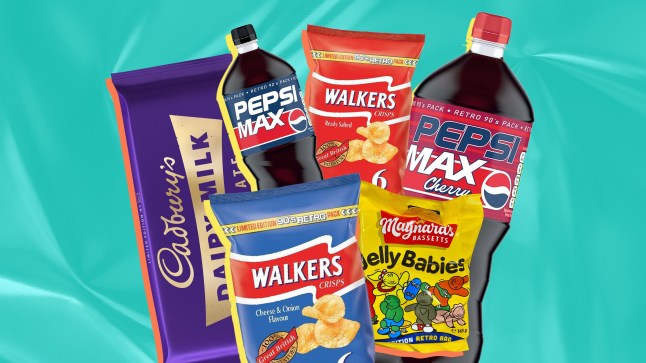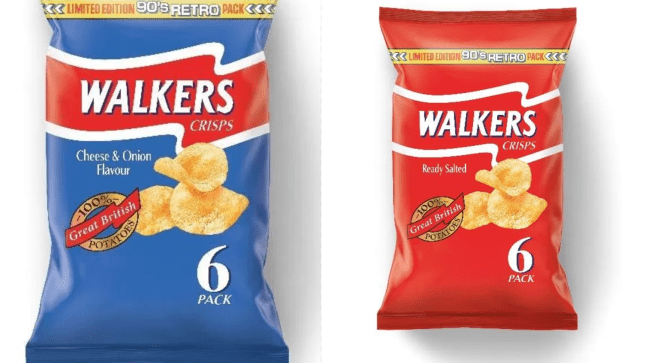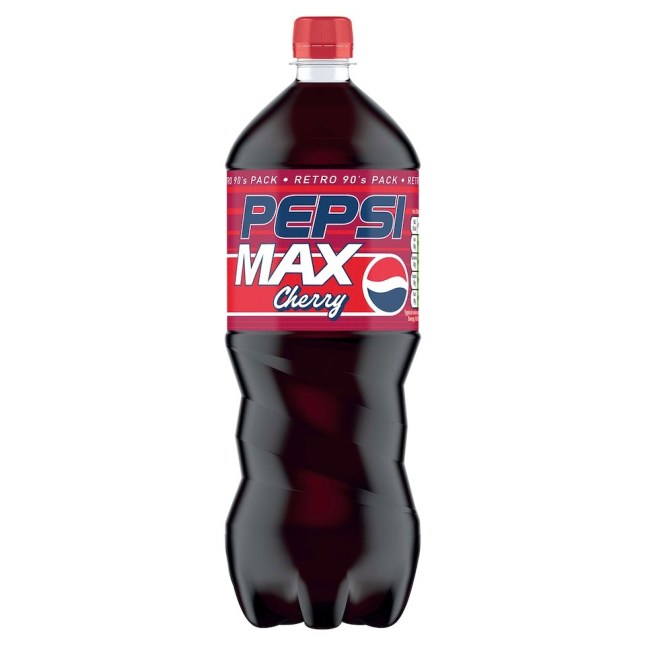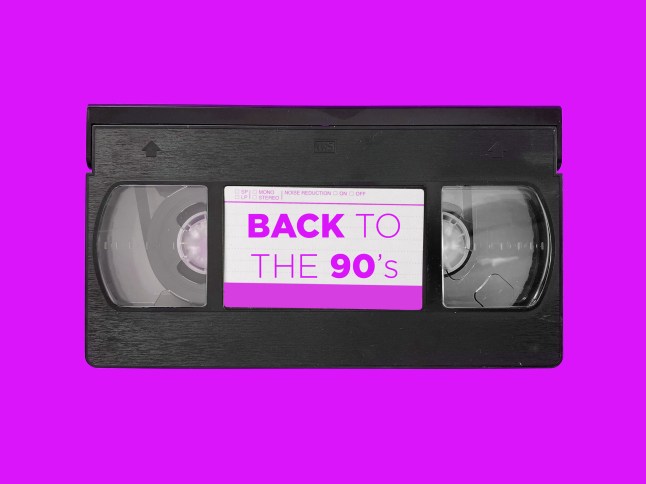
It’s 2025 but everywhere you turn the 90s and 00s are making a comeback.
From the clothes we wear, to the groceries we buy, everything seems to have been plucked straight from our childhood these days.
Big brands are getting in on the action, with Walkers recently launching retro throwbacks in supermarkets. The crisp giant is currently selling multi-packs of Cheese & Onion and Ready Salted Crisps in 90s packaging to celebrate 30 years of Tesco Clubcard, and retro packets of Jelly Babies have also been spotted in the shops too.
You might also recall Cadbury turning back the clock for its 200th anniversary, launching Dairy Milk chocolate bars wrapped in purple and white designs from over the years and Pepsi also recently gave this a go too with old school bottles.

On social media shoppers have had mixed reactions to these 90s comebacks, with some thrilled to see the products looking the way they remember, but others concerned that brands are simply ‘preying’ on us with a nostalgic marketing ploy.
Dr. Thomas Robinson, a senior lecturer in marketing at The University of London’s Bayes Business School, doesn’t think it’s helpful to simply look at this as brands ‘preying’ on consumers, as businesses naturally exist to make money, by offering goods consumers want.
He claims the focus should be on the reason why brands are tapping into nostalgia right now and what they should be doing instead.
‘The broader cultural diagnosis of why we have resorted to nostalgia is more interesting,’ he tells Metro. ‘People don’t like the world that they live in, there’s no hope for the future, so the go-to is nostalgia.

‘It’s an expression of the times that we’re living in where there’s a huge amount of uncertainty – we have one future for robots, another for sustainability and there are lots of wars going on.
‘With all of this happening, it’s easier to get people to look back and think about how good the past was.’
But looking back through rose-tinted glasses can be quite ‘repressive’ according to Dr. Robinson. This is because you end up with a sanitised view of the past, where you idealise what it was like to live back then and end up forgetting about the negative things that were happening in the world at the time.
As such, he’s keen to see brands doing something different with the products and messaging they put out.
‘Nostalgia is a symptom of the world we live in, but it shouldn’t be the solution,’ he explains.
‘It’s a bit like eating a chocolate bar when you’re on a diet. It feels good for a second, but afterwards you feel like garbage, and that’s because you’ve not really moved forward or addressed the problems you’re actually facing, or in this case the problems the world is facing.
‘Many brands would be far better served by trying to diagnose and understand the world we’re living in now and coming up with actual solutions, because at this point we’re basically just treading water.
‘I would say we’ve been culturally stagnant since 2005.’

The expert recalls how previously you could see a hairstyle from the 80s and know which decade it’s from, the same goes from music released in the 70s and movies made in the 90s – they all looked of a time.
But he doesn’t think future generations will be able to tell the difference between then and now, as everything from the past keeps making comebacks – from the haircuts and clothes, to the packaging of our food.
‘We’re living in cultural Groundhog Day. It’s like a revolving door, we’ve gone nowhere,’ Dr. Robinson says.
‘I think part of it comes down to the way we switched to the internet and everything became shareable. We have no incentive to create new things now.’
And if you’re currently reading this and thinking, they’re just crisp packets, it’s not that big of a deal, you’d be mistaken.
As with all products, food is not just marketed as food, it’s sold as a ‘lifestyle proposition’ and it’s all about what kind of image and lifestyle the brand is selling you.
‘Think of water, there’s a difference between buying an own-brand Sainsbury’s bottle of water and a branded one like San Pellegrino. Which one you have says something about you, it’s not just the hydration that matters, right? It’s the same with crisps.
‘It’s literally just a fried potato that’s been sliced, but the packaging says something – is it a lifestyle proposition that’s orientated towards the past, safety and stagnation, or is it a lifestyle proposition oriented towards something new and special?’
Creating the latter requires much more thought and effort, but Dr. Robinson believes the brands that put the work into this will be much more successful in the long run.
‘If we have a brand that can come up with a lifestyle proposition that’s a believable narrative about hope for the future, people will flock to that.’
Do you have a story to share?
Get in touch by emailing MetroLifestyleTeam@Metro.co.uk.







